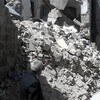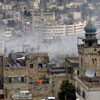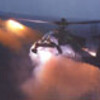
Act immediately to lift the siege off Nablus, Balata and Beit Foreek
3 January 2004
Nablus has been under siege for the last 10 days while Balata refugee camp has been under siege for the last 18 consecutive days. We have just heard that every single entrance/exit to Balata has been sealed off completely. No food or medicine is allowed in. Medical relief teams are being obstructed and at times completely prevented from passing through. Activists from ISM (the International Solidarity Movement) were attacked while carrying out their missions to observe and bear witness on what the Israeli occupation authorities are brutalizing the Palestinian population. Read more about Act immediately to lift the siege off Nablus, Balata and Beit Foreek








